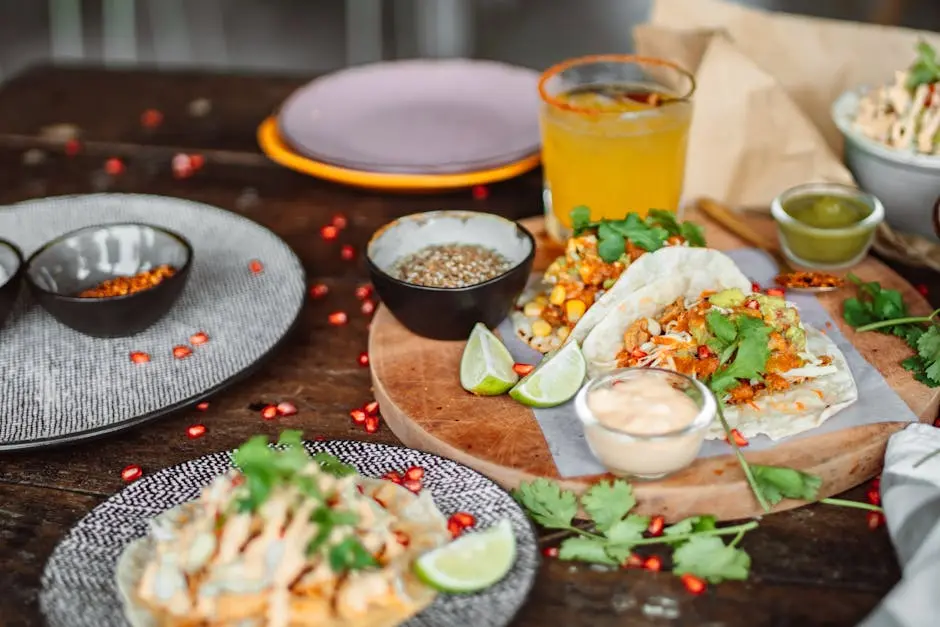Food is a universal language, and through culinary exploration, we can uncover the rich tapestries of diverse cultures around the globe. This blog will delve into how trying new dishes can break down barriers, foster understanding, and promote appreciation among different communities. Join me as we embark on a flavorful journey that showcases the interconnectedness of our world through the culinary arts.
The Role of Food in Cultural Identity
Food shapes our identity, reflecting our history, geography, and values. Exploring how traditional dishes are closely tied to the cultural practices of various communities can enhance our understanding of who they are.
For instance, take the timeless recipe of paella from Spain, which combines local seafood, vegetables, and rice. Each ingredient tells a story; it is reminiscent of the Mediterranean's rich maritime culture and agricultural traditions. By savoring such dishes, we engage with the essence of a place, its people, and their way of life.
In many cultures, food is a source of pride. Celebrations, holidays, and even daily meals often feature family recipes passed down through generations. When we taste these lovingly prepared meals, we are not just enjoying flavors; we are partaking in a shared cultural heritage that strengthens our connection to others.
As we dive deeper into culinary traditions, we discover that food serves as a marker of identity. For various communities, the act of sharing meals can embody the values of hospitality and respect deeply rooted in their culture. Ultimately, understanding the role of food can illuminate the larger narrative of human connections.
Culinary Adventure as a Bridge Between Cultures
Traveling and tasting new cuisines allow us to connect with locals, sharing experiences and stories that enrich our understanding of their way of life. This highlighting of mutual love for food fosters camaraderie.
Imagine sitting at a bustling street food market in Bangkok, devouring spicy pad thai while chatting with a street vendor about the art of balancing flavors. In these moments, culinary exploration transcends the act of eating; it builds relationships and establishes common ground.
Every meal becomes an opportunity to learn. The spices used, the cooking techniques, and even the dining customs reflect the values and traditions of a culture. As travelers engage with local cuisine, they become ambassadors, forging connections that resonate long after their journeys have ended.
In this way, food serves as a bridge between people from vastly different backgrounds. The simple act of breaking bread can dissolve barriers, allowing us to celebrate our shared humanity. The flavors we discover weave a rich tapestry of experiences that connect us across time and geography.
Fusion Cuisine: A Modern Reflection of Globalization
The rise of fusion cuisine showcases how culinary exploration merges flavors and techniques from different cultures, creating innovative dishes that standout in today’s culinary landscape.
From Korean tacos to sushi burritos, fusion cuisine embodies the spirit of modern globalization. These dishes often arise from cultural exchanges, where chefs and home cooks alike experiment, blending flavors that once seemed worlds apart. The result is often exciting, fresh, and delicious, challenging our preconceived notions of traditional cuisine.
This culinary phenomenon is a testament to the beauty of diversity. It encourages us to embrace experimentation in the kitchen while celebrating the connections formed through shared tastes. Diners are invited to explore and appreciate various culinary traditions, leading to newfound respect for the broader culinary world.
Moreover, fusion cuisine can act as a medium for storytelling. Each dish has the potential to narrate histories of migration, cultural exchange, and creative expression. As we savor these innovative recipes, we are reminded of how food continues to evolve in response to an ever-changing world.
Cultivating Respect Through Culinary Experiences
Engaging in culinary exploration fosters respect for other cultures and traditions. Understanding food's role in social gatherings and rituals can break down stereotypes and encourage dialogue.
Picture a meal shared during a cultural festival; every dish holds its significance and narrative. As we gather around the table, we partake in stories that celebrate heritage and community. This shared experience elevates our understanding, pushing us to appreciate the nuances behind each dish.
Furthermore, learning to prepare traditional recipes allows us to pay homage to the custodians of culinary knowledge. Each cooking lesson taken under the guidance of a local chef is a chance to engage, ask questions, and immerse ourselves in the heart of a culture. This deep engagement inspires a greater respect for how culinary practices have shaped identities.
Culinary experiences have the potential to bridge gaps and generate meaningful conversations. When we take the time to understand the history and significance of what’s on our plates, we cultivate relationships built on empathy and understanding, sowing the seeds for a more interconnected world.
Sustainability in Culinary Exploration
As we explore culinary practices globally, considering sustainable choices becomes vital. Many cultures emphasize cooking with local ingredients, which can inspire sustainable living practices in our own communities.
By understanding the importance of local sourcing, we can appreciate the value of community and the benefits of consuming food grown in harmony with the environment. For instance, the Mediterranean diet, rich in vegetables, legumes, and healthy fats, not only offers deliciousness but also reflects a commitment to sustainable agricultural practices.
Moreover, conscious culinary choices can contribute to environmental stewardship. Reducing food waste, being mindful of food origins, and advocating for fair trade represents a growing movement toward sustainability. By adopting these practices, we not only honor the culinary traditions we explore but also the planet we inhabit.
As culinary explorers, let us celebrate not only the flavors but also the journeys toward sustainability. It is our collective responsibility to ensure that future generations can enjoy the bounties of the earth while preserving the rich tradition of food that connects us all.
Embracing the Flavorful Connections
In conclusion, culinary exploration is more than just tasting new ingredients; it is a pathway to understanding diverse cultures and traditions. By embracing the flavors of the world, we connect with others in meaningful ways, fostering respect and admiration for the uniqueness of each culture. So, the next time you sit down to a meal, remember that you are partaking in a rich tradition that transcends borders and connects hearts.







































